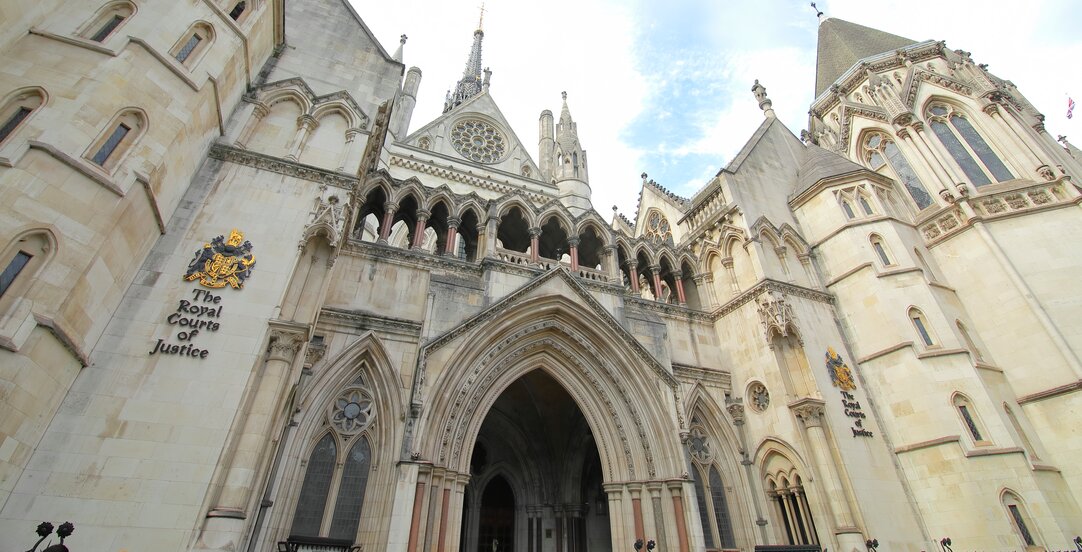Worldwide freezing orders upheld in multi-national shipping fraud case

In a recent decision by the English High Court (Manchester Shipping Ltd v Balfour Worldwide Ltd & Anor [2019] EWHC 194 (Comm).) two worldwide freezing orders in a multi-national shipping fraud case were upheld, rejecting the defendant's allegations of breaches of full and frank disclosure and provided useful confirmation of the standing of an intermediary charterer to claim for the full value of the hire.
Lesetid 5 minutter
The charterer, Manchester Shipping Ltd ("Manchester"), had chartered three vessels from an Isle of Man company, Silverburn Shipping (IoM) Ltd ("Silverburn") and had sub-chartered them to a Russian company called Caspian Hydra Technologies ("KGK").
During the charter period, the sub-charterer KGK stopped paying hire for the vessels and Manchester suspected that hire was fraudulently being diverted from KGK to a UK company, Balfour Worldwide Limited ("Balfour"). Manchester was granted two worldwide freezing orders in May 2018 in support of its claim. In its attempts to discharge the worldwide freezing orders, the defendants (Balfour and Mr Sochin, who was the owner of Balfour) contended Manchester had not suffered any loss and accused it of breaches of the duty of full and frank disclosure of such severity and culpability that the orders ought to be scrapped.
The defendants' case
Fraud
The defendants admitted the fraud by admitting that they had fraudulently created sham charterparties between KGK and Balfour in an attempt to divert hire monies to Balfour away from Manchester (the "Balfour Charterparties"), even going so far as to sue under the forged charterparties in Russia both at first instance and on appeal.
In the London proceedings, in which the defendants attempted to discharge the worldwide freezing orders, the defendants claimed that a Russian company, Ark (also owned by Mr Sochin) had in fact chartered the three vessels to Manchester and not Silverburn. The defendants submitted and relied upon three written charterparties purporting to support the position that Ark had chartered the vessels to Manchester instead. This claim was however flawed, with the judge Sonia Tonlaney QC noting in her comprehensive judgment that "in May 2018, in proceedings in Russia, Mr Sochin expressly disavowed the existence of any charterparty between Manchester and Ark – a point which I raised with Mr Hayman QC, Leading Counsel for the Defendants, but in respect of which the Defendants had no explanation".
The Judge went on to comment that:
"A fundamental flaw in the Defendants' case, however, is the fact that until October of this year, the Defendants claimed that the Hire was payable [by KGK] to Balfour pursuant to the Balfour Charterparties. Indeed, and as further described below, Balfour brought proceedings in Russia to enforce its alleged right under those agreements. However, the Defendants now admit in these proceedings that the Balfour Charterparties were concocted by Mr Sochin and were sham charterparties".
Full and frank disclosure in application for worldwide freezing orders
The defendants also argued that there had been numerous breaches of the duty of full and frank disclosure on behalf of the claimant. The court gave a comprehensive recap of the duties of a claimant at a without notice application. The test as to whether there was material non-disclosure is whether the fact which had not been disclosed would have been material in the exercise of the Court's discretion. The court was very critical of the defendants and their legal advisors' approach; it was not at all proper for a defendant to try and allege as many allegations of non-disclosure as possible and "hope that something sticks". The Judge commented that she "found the Defendants' scattergun approach of making a large number of generalised complaints in lengthy and discursive evidence extremely unsatisfactory. It is trite that allegations of non-disclosure should be capable of being concisely and precisely stated." She went further to criticise the way in which the various allegations were made in that in "many of those allegations, neither the evidence nor the written submissions served by the Defendants identified with any precision the facts and matters alleged not to have been disclosed".
Standing of an intermediary charterer
The defendants finally claimed that as an intermediary charterer, Manchester had suffered very little to no loss. Manchester was contractually obliged to pay 99% of hire monies received further up the charter chain and, on the defendants' case, Manchester's loss was limited to 1% of the charter value and it was not therefore just and convenient to sustain a worldwide freezing orders for USD 5.6m. The court rejected this argument in simple terms. Manchester was entitled to hire under the charterparties, the full sum of that hire, and not just the 1% commission, "accordingly it is entitled to sue for the full amount. The arrangements it made in respect of any onward payment are not relevant to its present claim".
Comment
This is a useful and thorough judgment from the English High Court for three reasons.
Firstly, the judgment sets out a useful summary of the obligations of an applicant at a without notice hearing to make reasonable and full enquiries of the relevant facts and present these fully and openly to the court. That obligation extends to facts which are adverse to the applicant's case. However that obligation does not extend to every conceivable piece of information. Only those which would or could have reasonably be expected to have a material bearing on the court's discretion at the without notice hearing. Those challenging injunctions on the basis of non-disclosure as a ground for discharge should also note that any such allegations should be well thought out and capable of precise simple articulation, general allegations will not be sufficient.
Secondly, the judgment illustrates the English courts' intolerance of parties who seek to use technical loopholes in order to evade consequences for fraudulent wrong doing.
Finally, it is a useful confirmation and strengthening of the standing of intermediary charterers to sue for the full value of the hire in circumstances where the claimant's ultimate loss may be substantially lower.
Wikborg Rein (Chris Grieveson and Fiona Rafla) acted for Manchester Shipping in the proceedings.

